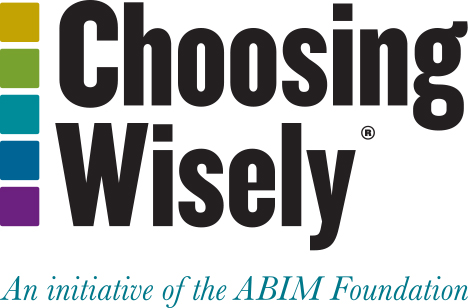UChicago medical trainees lead value improvements via #ChoosingWisely challenge

This week, Health Affairs and the ABIM Foundation will celebrate the fifth anniversary of the Choosing Wisely™ campaign to reduce waste in the health care system and avoid risks associated with unnecessary treatment. While the campaign has resulted in numerous physician groups nationwide to recommend wasteful practices that physicians should "not do," it has also had an impact in our own backyard.
Here at the University of Chicago Medicine, the Center for Healthcare Delivery Science & Innovation (HDSI) and Graduate Medical Education program formed a partnership to launch our own Choosing Wisely™ challenge. The premise was simple – that we would crowdsource the best ideas to improve value from frontline staff, including trainees, and provide them with resources and mentorship to help them test their prediction.
Proposals were required to use the Culture, Oversight, Systems, and Training framework developed in conjunction with Costs of Care, a nonprofit group focused on improving the safety and affordability of health care. Since many of the proposals could require changes to electronic health record software, we engaged our CMIO and Director of Informatics as judges, along with other institutional leaders from HDSI. As a bonus, the winning team receives analytic support from our Center for HDSI and the ability to “jump the queue” for IT requests--both of which are priceless for anyone wishing to improve value in a hospital.

Our inaugural projects included two ideas that tackled common overuse problems. Being at UChicago, birthplace of behavioral economics, it is only fitting that both projects used these principals to achieve their goals. The first one, ‘Skip the Drips’ used "accountable justification" to ask clinicians to justify why they were ordering a continuous IV infusion of proton pump inhibitor therapy, a costly and overused medication for patients suffering from upper gastrointestinal bleeds. In addition, they also launched an educational campaign targeting this infusion. In 9 months, they were able to reduce use of the costly infusion by 35 percent, at a cost savings of over $120,000 (which is a conservative estimate).
The second project ‘FLIP for Discharge’ directly tackled two of the Society of Hospital Medicine’s Choosing Wisely™ targets: urinary catheters and telemetry in stable hospitalized patients without indications. By embedding a passive "nudge" on the ubiquitous patient list used by every clinician, physicians could see that their patient was on telemetry or had a urinary catheter, and with one-stop shopping, could click on a check mark to discontinue the intervention. While this may sound pedestrian, this tackles the concept of "immaculate catheterization," or the fact that physicians often do not know their patients have a urinary catheter in place or how it got there. This same phenomenon has also been described in overuse of telemetry. This simple intervention, without much education, actually led to a 30 percent reduction in urinary catheter use and a similar reduction in telemetry use.
In addition to documenting significant impact, our trainees have also been able to publish in high impact, peer-reviewed journals, highlighting the novel contributions their work has made. The 2017 challenge projects being supported promote judicious use of lab tests and encourage creation of individualized pain plans for patients on chronic opioid therapy, such as sickle cell patients. Our hope is that these projects are equally successful in their impact on patient care.

Vineet Arora, MD
Vineet Arora, MD, MAPP, specializes in improving the learning environment for medical trainees and the quality, safety and experience of care delivered to hospitalized adults. She serves as Dean for Medical Education at the Pritzker School of Medicine.
See Dr. Arora's profile